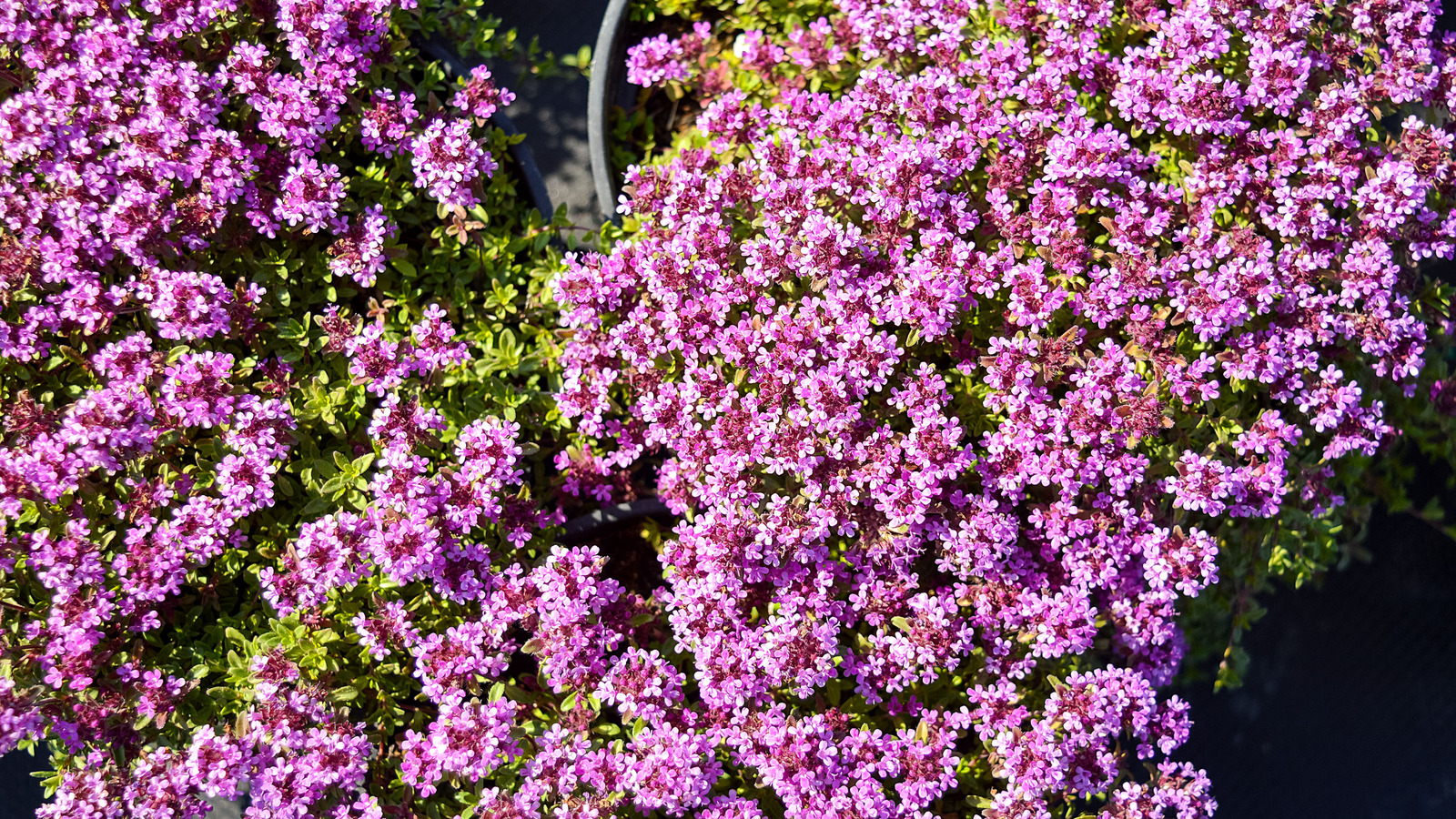
How To Successfully Grow A Creeping Thyme Plant
By providing consistent deep watering and monitoring soil moisture levels, you can ensure that your thyme plants in the ground remain healthy and resilient. Water thyme when the top inch of soil is dry. This usually means watering every 7-10 days, but adjust based on your specific growing conditions. Signs of Overwatering Thyme
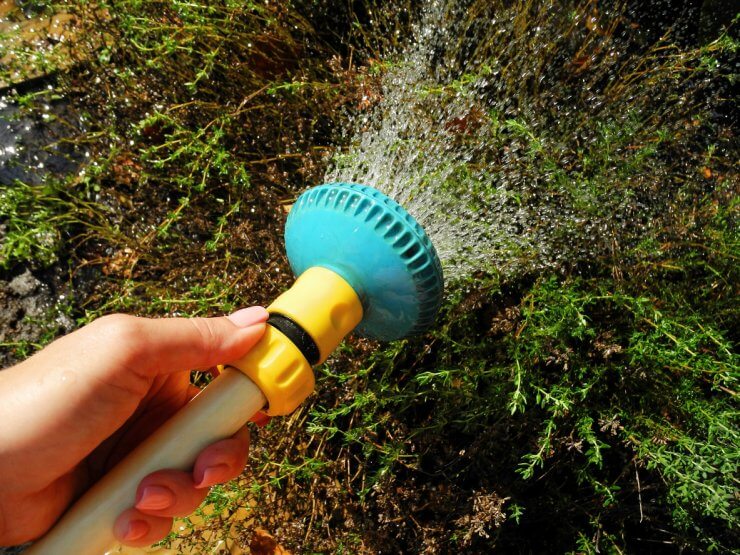
How—and When—to Water Your Thyme Plants Food Gardening Network
Doing this practice will give the seeds a head start in the germinating process and you might find that you see signs of life above the surface even faster. . I want to reiterate the question a bit again of how often you should water thyme seeds. The answer is not very often, at the most once a week really. It will have a sufficient amount with.

How Often to Water Indoor Succulents Plants, How to water succulents
The most important steps to revive a thyme plant that is turning brown is to: Scale back the watering to around once a week Transplant thyme if it is planted in slow draining soils or boggy ground Ensure that the thyme is in a large enough pot with good drainage.

How Often Should You Water Your Citronella Plants? CitronellaKing
How Often to Water Thyme. Establishment Phase (First 4-6 Weeks): During the initial growth period, water your thyme every 5-7 days, ensuring the soil is consistently moist but not waterlogged. Keep a close eye on the moisture level and adjust the frequency as needed. Mature Plants (After Establishment): As thyme plants mature and develop a.
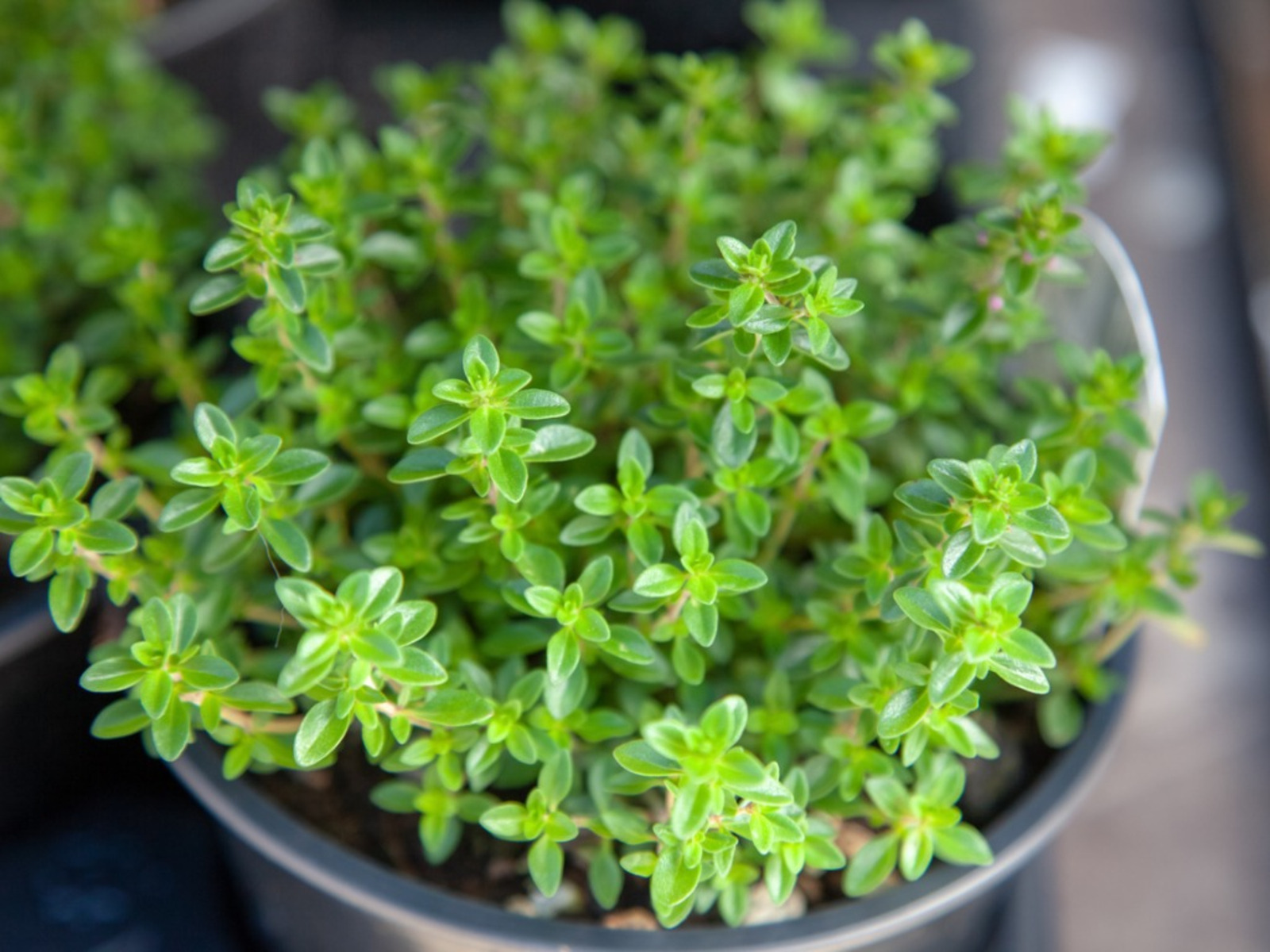
How to Grow Thyme From Seed Plant Instructions
Test the soil with a spade or your finger to see if it is still damp 2 inches below the surface. Add water if you see that the soil is dry and give the plant a deep water to make sure the water reaches the deepest roots. How often to water thyme in winter. Water thyme every month (4 weeks) in winter if the weather is dry.
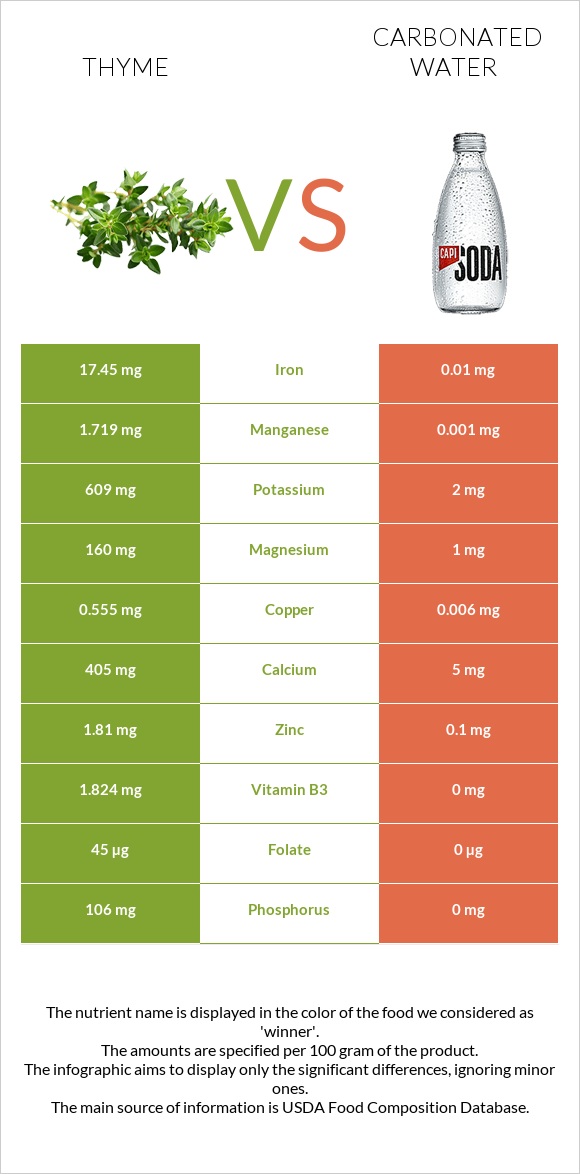
Thyme vs Carbonated water InDepth Nutrition Comparison
During the summer, you can water them every 10-15 days. However, if it's extremely hot, especially if it's grown outside, it's a good idea to water thyme more often, about once a week. Thyme is a drought-tolerant perennial that thrives in poor soils. It grows quickly and requires little care, making it an excellent choice for beginning.

How often to water thyme Rainbow Run Farm
Because weather affects how often you water thyme, it's a bit different when you're growing it indoors. Temperatures inside your house are usually not extreme. Therefore, the best approach is to use the spring/fall regular watering schedule of twice a month. This means the frequency of watering thyme should occur once every 14-16 days.

How to grow thyme from cutting SimplyBeyondHerbs
A good rule of thumb for watering thyme is to wait until the soil is completely dry before providing a thorough watering. In temperate climates, this usually means watering about once every one to two weeks for outdoor plants, and even less frequently for indoor thyme. JUMP TO TOPIC.
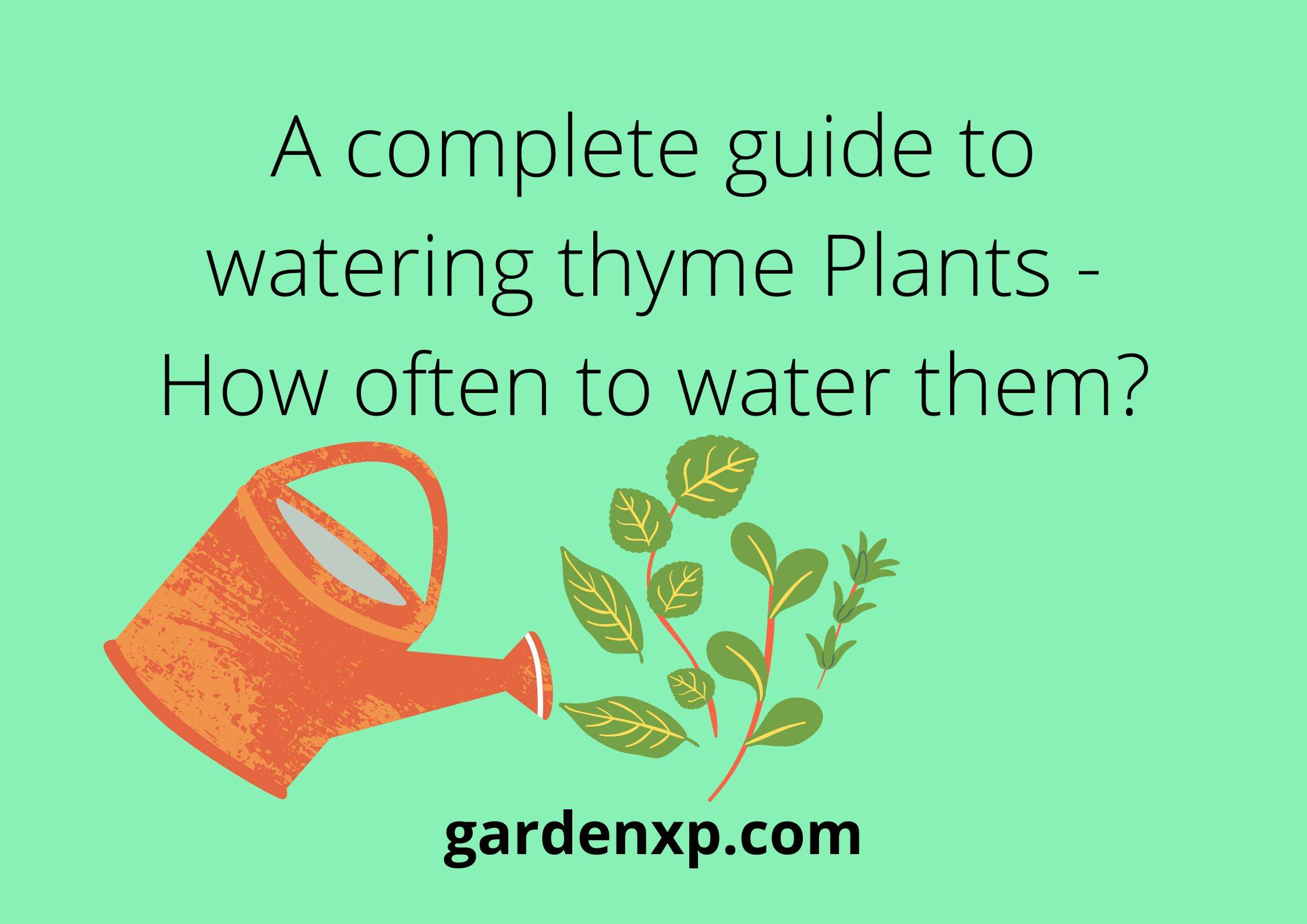
A complete guide to watering Thyme plants How often to water them?
How often to water your Common Thyme. 0.5 cups every 9. Common Thyme needs 0.5 cups of water every 9 when it doesn't get direct sunlight and is potted in a 5" pot. Use our water calculator to personalize watering recommendations to your environment or download Greg for more advanced recommendations for all of your plants.

How Often Should You Water Oregano? The Backyard Pros
What Kind Of Soil Is Best For Thyme. The best soil for thyme is one that has a very good drainage. This is actually the most important aspect to keep track of. Like I just mentioned above, too much water in the soil on the ground where the thyme is growing will make the roots rot. This can go rather quick if you keep up a schedule of watering.

Infused water Cooking with Diana
How Often to Water the Thyme Plant. During the summer, water the thyme once or twice a week. In the spring or fall seasons, when the temperature is not so extreme, the thyme plant can be watered about 2 to 3 times a month. If it is winter, then water the thyme once a month.
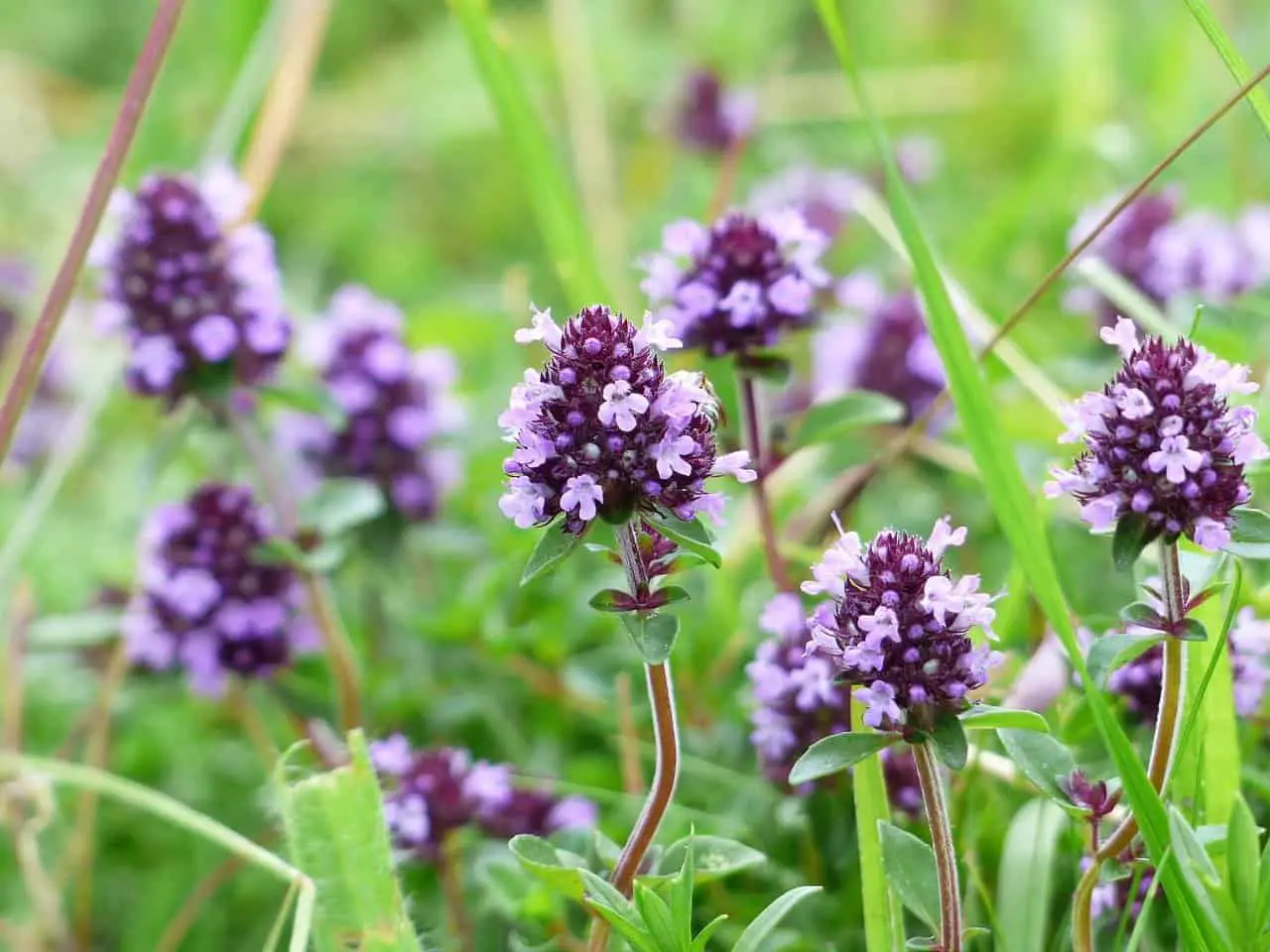
Do Thyme Plants Need A Lot Of Water GardensOfMine
Plan on watering your thyme seedlings every few days, or even daily. Keep an eye on the surface level dryness of the soil, and give the seedlings a sprinkle if it doesn't look moist. Thyme seedlings are faster to show it if they don't have enough water, so if the plant is wilting and the soil is dry, not enough water is probably the problem.

How Long To Water Lawn
The roots of thyme are very shallow. They usually go around 3 to 4 inches (7 to 10 cm) into the soil. Shallow roots are a problem in very hot weather. The plant can dry out quickly since it can't pull up water from deep in the soil. So, make sure to keep the soil moist until the plant settles down in the soil.

How Often Should You Water Herbs? [Simple Guide] Herbs Within
As a guideline, water thyme plants when the top inch of soil feels dry to the touch. This usually translates to watering every 7-10 days, but it can vary depending on factors such as climate and pot size. Q: What is the best time of day to water thyme? A: It is recommended to water thyme in the morning, allowing the leaves to dry off during the.
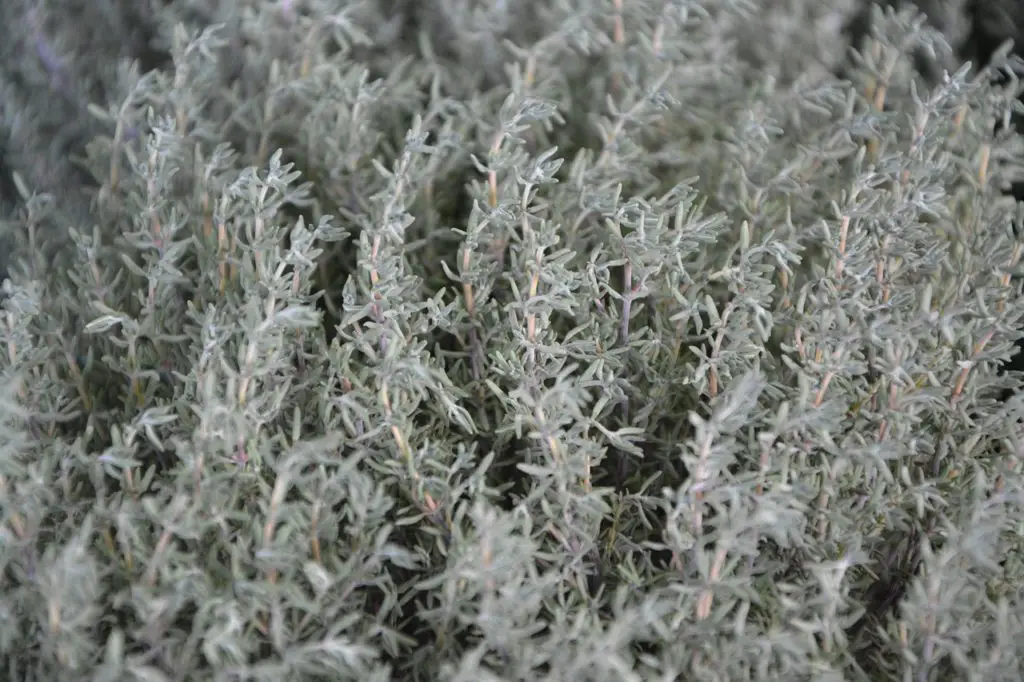
How Often Should You Water Thyme Seeds GardensOfMine
When you do water your thyme plants, hand water at the base of the plants or consider a drip hose or some other drip-irrigation method that will deliver water slowly and deeply into the soil. Avoid watering your plants from above; excess moisture on the foliage can cause rot and encourage diseases. Tip: Early morning is the best time of day to.
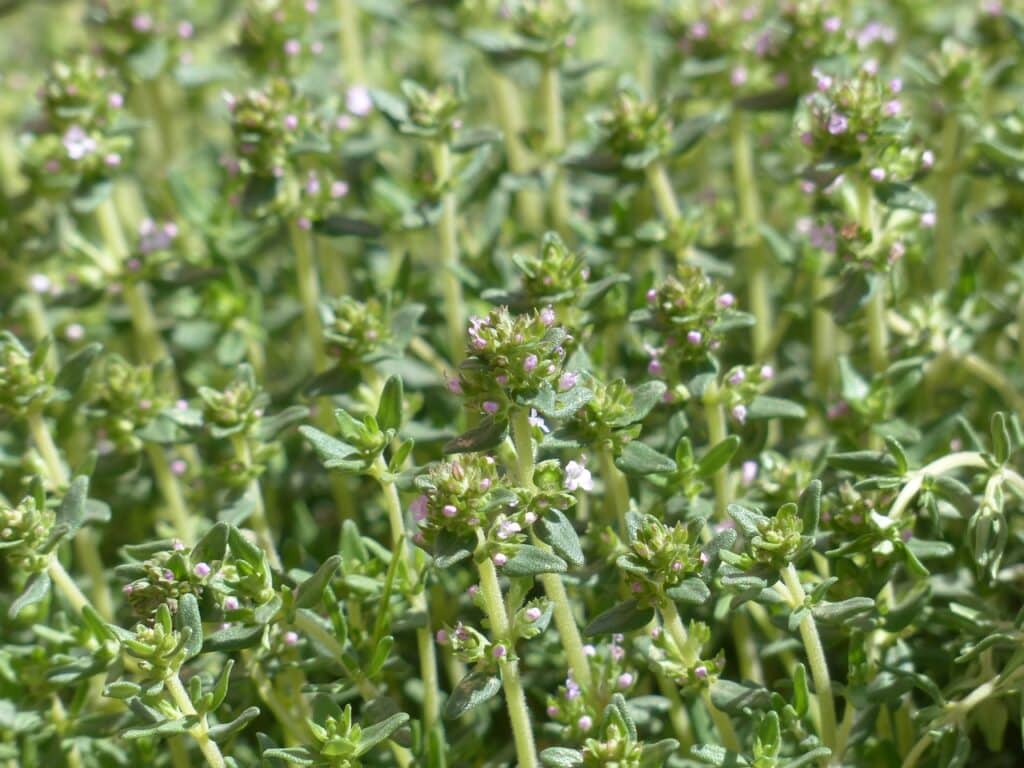
How Much & How Often to Water Thyme Tips, Factors, & FAQ House Grail
How Often to Water Outdoor Thyme? If situated outdoors, a thyme plant would be more exposed to the elements namely sunlight and wind. So, based on this you will need to water your thyme plant more often. Water your thyme plant a few times a week. But, ensure the thyme plant needs it by ensuring the soil is not still moist.